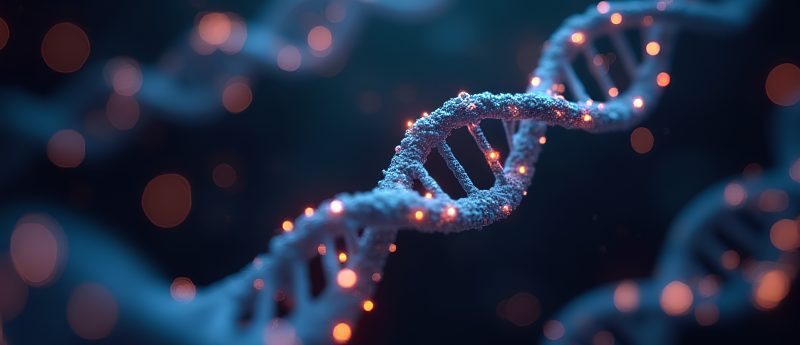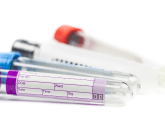Biomarker developments in kidney cancer and Parkinson’s disease

- Biomarkers associated with fatigue in cancer linked to Parkinson’s disease
- Biomarker for kidney disease could predict renal cell carcinoma risk years prior to diagnosis
Biomarkers associated with fatigue in cancer linked to Parkinson’s disease
Sarah Jones (Future Science Group)
New research from Rice University (TX, USA) has linked biological markers associated with extreme exhaustion in cancer patients to those associated with fatigue in Parkinson’s disease. The research, which is one of the first studies to link fatigue in cancer and Parkinson’s disease, is published in an upcoming issue of Acta Neurologica Scandinavica.
Blood samples were examined from 47 patients with Parkinson’s disease. Half of these were suffering from high levels of fatigue. One of the study’s lead authors, Chris Fagundes (Rice University), commented that fatigue is one of the most significant contributors to reduced quality of life in Parkinson’s disease patients.
Elevated levels of the interleukin-1 receptor antagonist (IL-1RA) and vascular cell adhesion molecule 1 (VCAM-1) were found in the Parkinson’s disease patients suffering from fatigue. These inflammatory biomarkers are also linked to fatigue in patients with cancer.
Fagundes, whose previous research focused on the link between specific biomarkers and cancer-related fatigue, explained this is one of the first times these cancer-related biomarkers have been linked to Parkinson’s disease. It is hoped by the researchers that developing treatments to target these inflammatory biomarkers could lead to improved quality of life in affected patients.
Sources: Herlofson K, Heijnen CJ, Lange J et al. Inflammation and fatigue in early, untreated Parkinson’s Disease. Acta. Neurol. Scand. doi: 10.1111/ane.12977; www.eurekalert.org/pub_releases/2018-08/ru-blf080918.php
♦
Biomarker for kidney disease could predict renal cell carcinoma risk years prior to diagnosis
Rhiannon Finnie (Future Science Group)
Researchers from Brigham and Women’s Hospital and Beth-Israel Deaconess Medical Center (MA, USA) have reported that blood concentrations of kidney-injury-molecule-1 could predict a patient’s risk of developing renal cell carcinoma 5 years before clinical diagnosis.
Kidney-injury-molecule-1 (KIM-1), an important marker for kidney disease, could potentially predict renal cell carcinoma (RCC) years before diagnosis. A recent study, published in Clinical Cancer Research, has investigated whether a blood test can detect higher concentrations of KIM-1 in patients who will go on to develop RCC up to 5 years later. The study, run by a team of investigators from Brigham and Women’s Hospital (MA, USA) and Beth-Israel Deaconess Medical Center (MA, USA), reported KIM-1 substantially helped distinguish between patients who went on to develop RCC from those who did not.
To carry out their experiment, the team enlisted patients from the European Prospective Investigation into Cancer and Nutrition. They measured the levels of KIM-1 in blood samples from 190 patients who went on to develop RCC and compared these with samples from 190 matched participants (same age, body mass index and smoking status) who did not. It was reported the average concentration of KIM-1 was double in the samples of those who would develop RCC compared to those who would not.
The study also reported that including KIM-1 in a model for predicting RCC risk approximately doubled its accuracy. KIM-1 was reported to be substantially more sensitive for RCC detection than prostate specific antigen is for prostate cancer. However, given how much rarer RCC is, the researchers noted KIM-1 should be measured alongside another kidney disease specific marker to enable effective early detection in the general population.
The authors concluded: “We envision that KIM-1 will be useful in settings where the risk of kidney cancer is higher, such as patients undergoing abdominal CT scanning, where KIM-1 could be used to stratify risk of RCC. This will be particularly important given the rise of routine CT scans and the strong association between number of CT scans and number of nephrectomies performed at the regional level in the U.S., indicating a substantial burden of over diagnosis.”
Sources: Scelo G, Muller DC, Riboli E et al. KIM-1 as a blood-based marker for early detection of kidney cancer: a prospective nested case-control study. Clin. Cancer Res. doi: 10.1158/1078-0432.CCR-18-1496; www.eurekalert.org/pub_releases/2018-08/bawh-nbt081018.php





